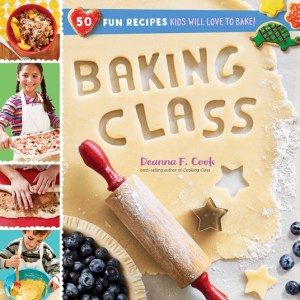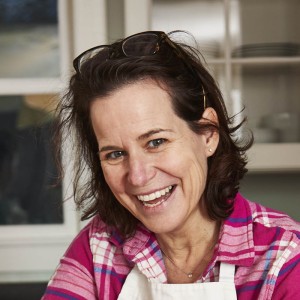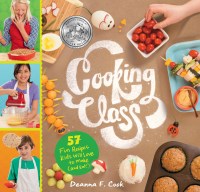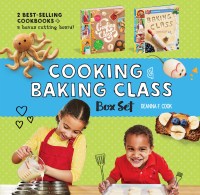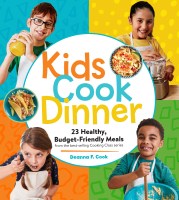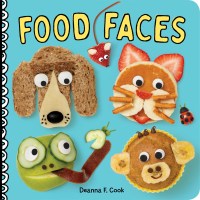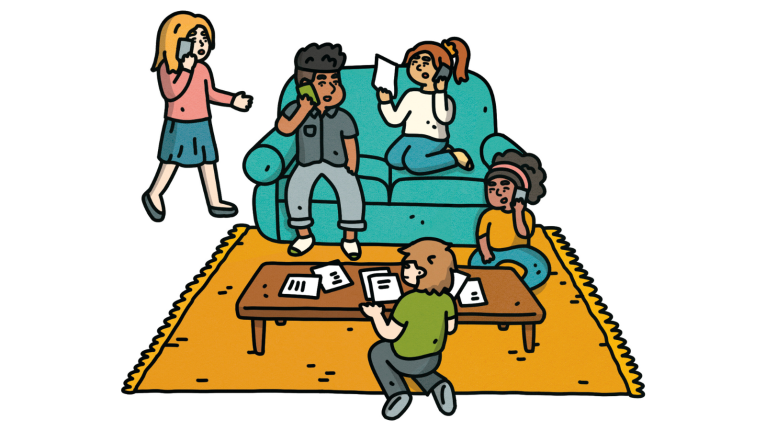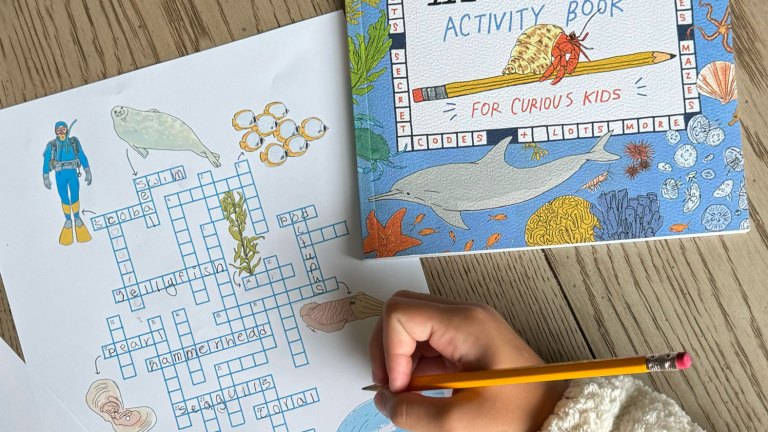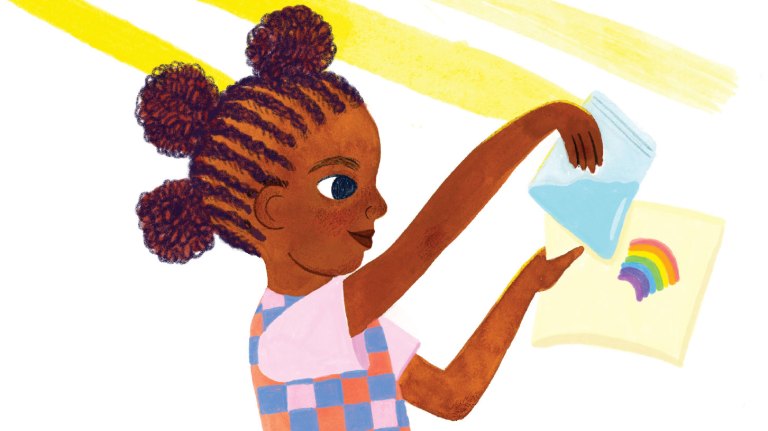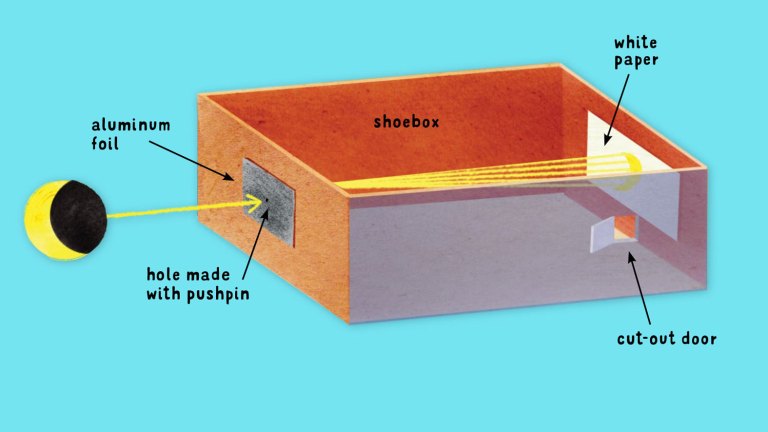Baking with Kids: An Age-by-Age Guide to Kitchen Skills
Teaching kids to bake? Author Deanna F. Cook says one way to keep the rewards sweet is by giving them kitchen tasks they can master at every age, from toddler to tween.
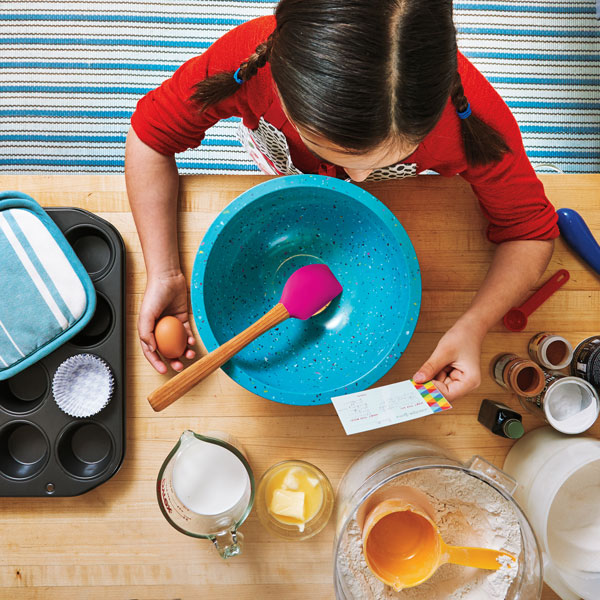
As a kids’ cookbook author, cooking teacher, and a mom, it’s a treat for me to watch children roll up their sleeves, measure flour, knead dough, and bake from scratch. When the final products come out of the oven smelling delicious, kid bakers are proud of what they’ve made and always happy to share it with friends, family, and me (thank you!).
Cultivating baking skills in beginner cooks means getting kids in the kitchen at a young age. As they grow and learn their way around the equipment, ingredients, and techniques, they will become more independent and confident — and they might just develop a love of baking that can last a lifetime.
It’s worthwhile to establish a few all-ages guidelines for good kitchen habits from the get-go.
Encourage and remind your budding bakers to:
- Read a recipe from start to finish before getting down to the measuring and mixing, and follow the outlined steps closely. If there is unfamiliar vocabulary, ask for help before proceeding.
- Wash hands before handling food. Tie back long hair to keep it out of the way (and the food!) while working.
- Always use pot holders when moving pans in and out of the oven, and turn the oven off after use.
Of course, the kitchen skills kids can handle will depend on their age, dexterity, and attention span. The younger the kids, the more help they will need along the way. But there are plenty of ways for even the littlest of hands to assist. It helps to consider recipe complexity before starting out. Some recipes include difficulty ratings like those in my book Baking Class, where each recipe is labeled with anywhere from one to three rolling pins (three being the most advanced). New chefs can start with easier recipes and work their way up.
Gearing up for your baking fun
As you gear up for your baking fun, here are a few broad guidelines for the tasks the kid bakers in your household might be ready to handle.
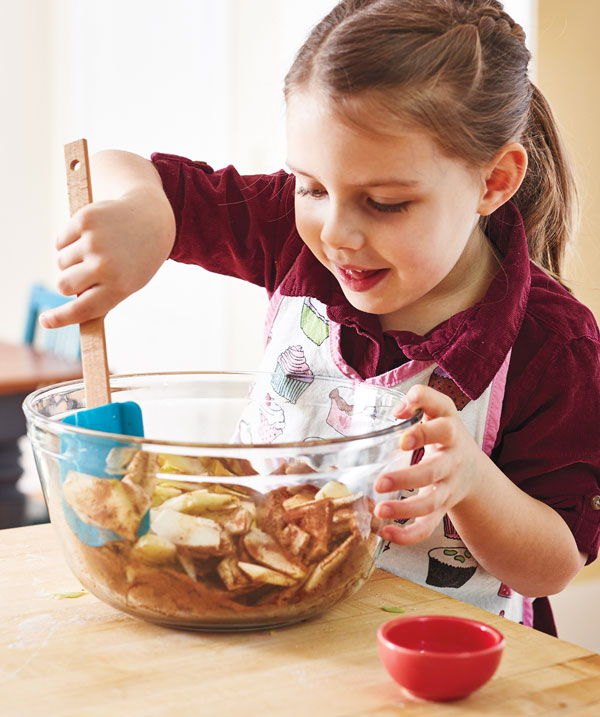
Preschool (ages 2–5 years)
Most toddlers and preschoolers love to help with baking. They are enthusiastically hands-on and enjoy stirring, kneading, and scooping batter into baking pans. Encourage them to use their senses — smell spices like cinnamon, touch flour, and even taste an ingredient before it goes into the mixing bowl. Children this age will need a lot of help from you. Most don’t have the dexterity to measure accurately, or the reading ability (or attention span) to follow a recipe from beginning to end. But give them lots of opportunities to dump ingredients into the mixing bowl and stir. This simple activity will bring them a lot of joy.
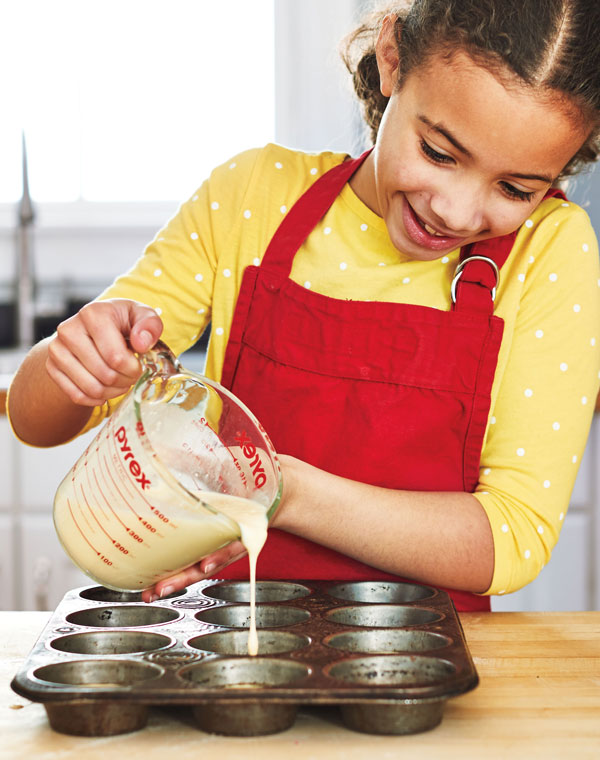
Young Chef (ages 6–8 years)
Kids in elementary school have developed fine motor skills and a good grasp of basic reading and math, so they can follow simple recipe instructions and measure ingredients. They are also good at tasks like greasing and flouring pans, cracking eggs, sifting, whisking, kneading, and arranging garnishes into fun food faces. Encourage your young chef to look closely at the recipe steps as they work, but stay by their side to be sure they’re on top of things, and step in if they get off-track.
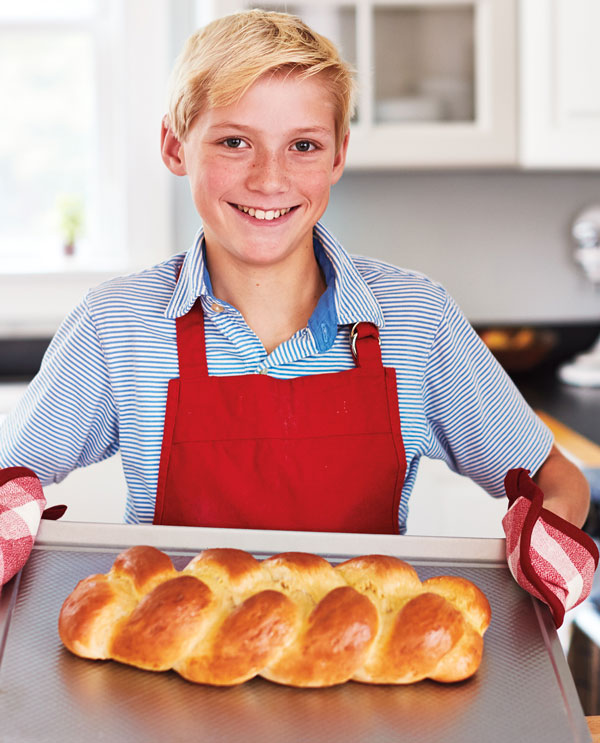
Tween (ages 9–12 years)
Older kids can handle more complicated tasks, such as using an electric mixer or food processor, as well as putting food into the oven. This is a great age for longer baking projects, like baking bread from scratch or making and decorating a birthday cake with homemade frosting and fancy piping. Tweens have the attention span and the patience for slower tasks like proofing yeast and waiting for bread dough to rise, melting butter, and rolling and crimping piecrust. Try to give them as much independence as you can, but be available in case they struggle with a step, or need a reminder to turn off the oven and clean up the kitchen.
Most importantly, have fun! Happy baking!
2017 IACP Cookbook Award Winner
2017 National Parenting Product Awards Winner
2018 Mom’s Choice Award Gold Winner
2019 New York Times “Best Cookbooks for Kids”
Also available in this series: Cooking Class and Cooking Class Global Feast!
